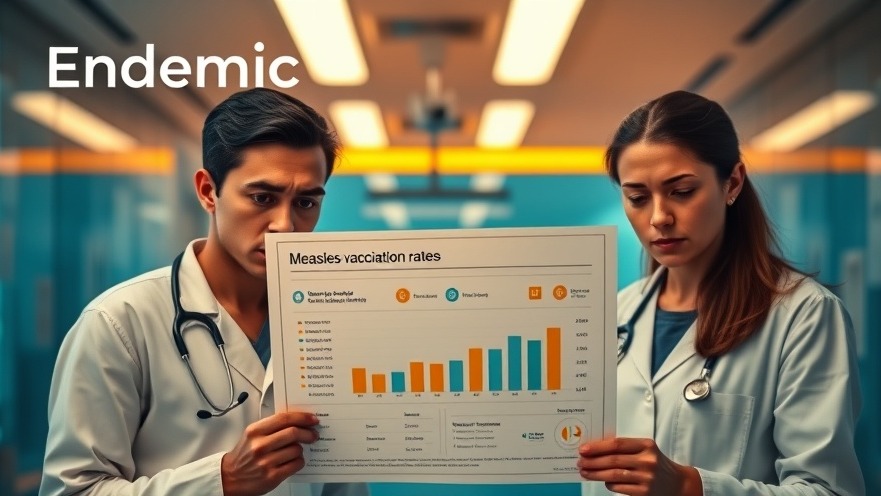
The Rise of Measles: A Looming Public Health Crisis
As the United States grapples with its second-largest measles outbreak in 25 years, with 884 confirmed cases reported, the current landscape is raising alarms among health officials and independent practitioners alike. This surge in cases comes on the heels of a significant decline in vaccination rates, which has put millions at risk and raised the possibility of measles becoming endemic once again in just two decades. With ongoing outbreaks primarily concentrated in Texas, New Mexico, and Oklahoma, urgent action is necessary to avoid further deterioration of public health.
The Current Outbreak: A Snapshot
The latest data indicates that 646 cases have been confirmed in Texas alone, leading to two fatalities and an ongoing investigation into another. Health experts have noted that these outbreaks predominantly affect tightly-knit communities where vaccination coverage is alarmingly low. Since the elimination of endemic measles in the U.S. in 2000, the recent decline in immunization rates among these groups is a troubling sign of what may lie ahead if corrective measures are not swiftly implemented.
The Crucial Role of Vaccination
A study from Stanford University sheds light on a stark reality: the U.S. could face millions of measles cases in the next two decades if vaccination rates drop by merely 10%. Dr. Nathan Lo, an infectious disease physician, warns that even a slight decrease in vaccination could normalize hospitalizations and deaths from measles, a disease once believed to be under control. To combat this looming threat, health officials emphasize the importance of raising vaccination rates—just a 5% increase in state-level vaccination could prevent hundreds of thousands of infections.
A Call for Action: Implications for Independent Practitioners
For independent physicians, nurse practitioners, and other healthcare providers, understanding the implications of these trends is critical for patient health management. As trusted members of the community, healthcare professionals play a vital role in promoting vaccination awareness and improving rates. Engaging with patient education tools, exploring healthcare automation, and utilizing patient engagement tools can enhance communication and encourage families to prioritize immunization for their children.
Addressing Vaccine Hesitancy
One of the pivotal challenges facing healthcare providers is addressing vaccine hesitancy among parents. Societal misconceptions about vaccine safety can hinder immunization efforts. By providing accessible information and using a human-centered approach, healthcare providers can help demystify vaccines and offer advantages like reduced healthcare burdens. This proactive dialogue is essential in countering fears and building a community more receptive to vaccination campaigns.
Future Predictions: The Path Ahead
The current trajectory of measles resurgence poses stark questions for the public health landscape. Should vaccination rates continue to decline, we may witness a return of measles not just as an isolated outbreak but as a consistent presence within communities. Health systems must therefore prioritize strategies that enhance operational efficiency, improving areas like clinic cost savings and medical billing recovery—factors that can relieve financial pressures and enable providers to focus more on patient care.
Preventive Measures: Protecting Our Communities
As community health remains paramount, it’s crucial for independent practices to implement protocols that bolster vaccination outreach—potentially leveraging remote therapeutic monitoring solutions or practice automation tools to simplify the processes involved in maintaining patient vaccination records. Ensuring compliance with healthcare standards, including HIPAA regulations, while adopting cutting-edge solutions can position practices to effectively engage and educate patients on vaccination risks and benefits.
In conclusion, the threat of measles becoming endemic in the U.S. is real and pressing. The community must come together, led by healthcare practitioners who serve on the front lines, to prevent this dire scenario. It’s time to take action—commit to discussions about vaccinations, advocate for healthcare tools that promote public health, and ultimately safeguard the future well-being of our communities.
Call to Action: Let’s prioritize community health. Discuss the importance of vaccinations with your patients today and explore innovative healthcare solutions that enhance patient engagement in your practice.
 Add Row
Add Row  Add
Add 




Write A Comment